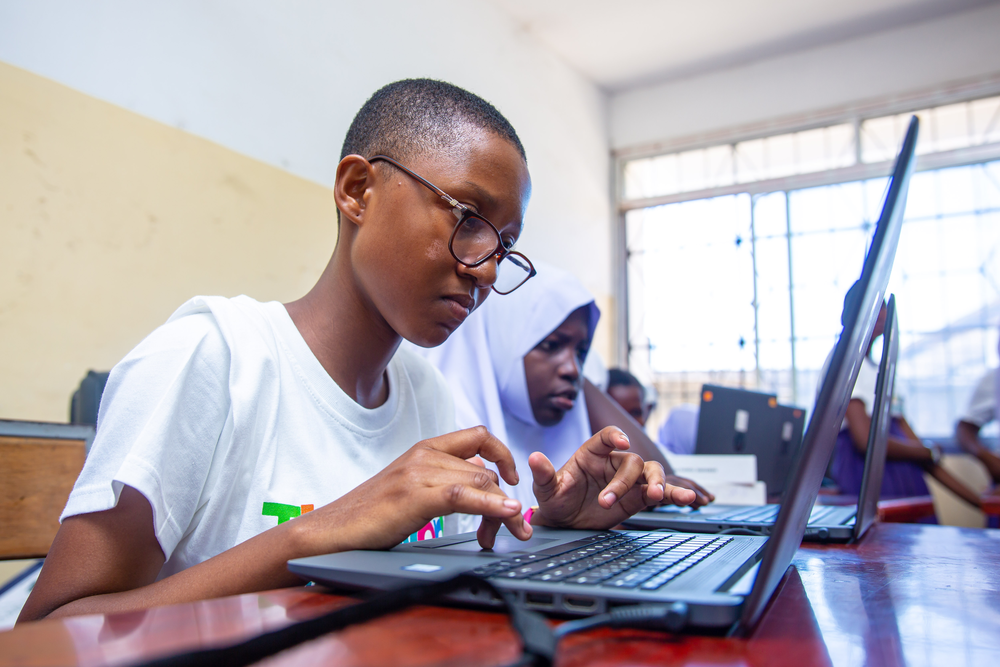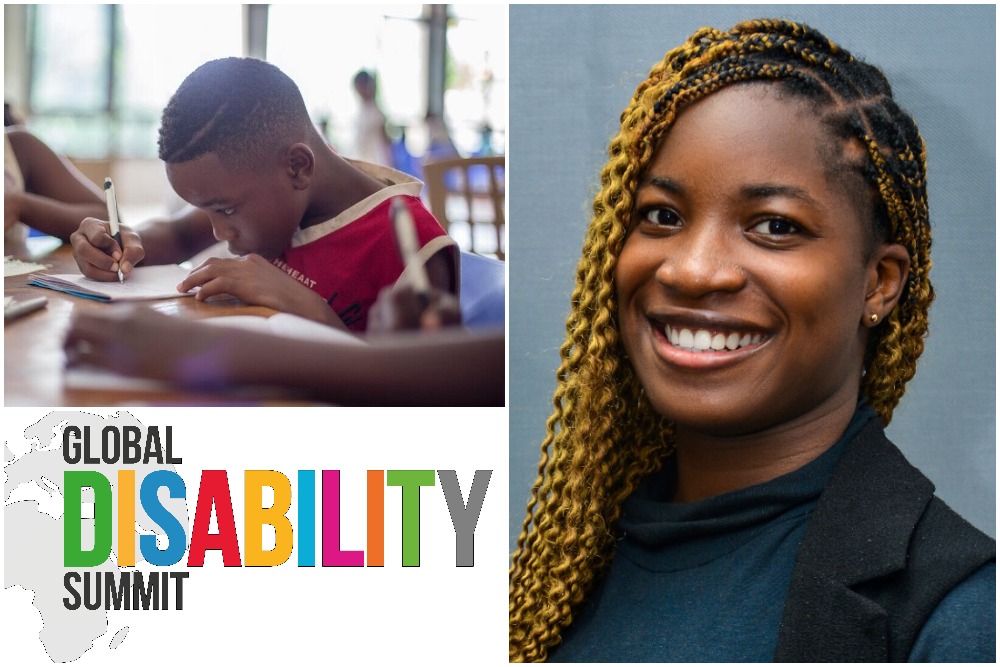
Five things you need to know this week about global education

The Global Business Coalition for Education (GBC-Education)
Our final roundup of 2021 includes a pledge by business to deliver youth skills and a call for South Asian countries to fully reopen all schools.
Companies pledge to take action on education
More major companies are promising to bolster their support for education and provide young people with the skills they need for future employment.
Dozens have already signed the Education Business Pledge – driven by the Global Business Coalition for Education, an initiative of Theirworld. They include Dell Technologies, SAP, Deloitte, HP, Microsoft and Unilever.
As part of the RewirEd 2021 Summit in Dubai this week, the coalition has been encouraging more business leaders to take action. Justin van Fleet, Executive Director of GBC-Education and President of Theirworld, said: “Young people today are facing the perfect storm – a growing education crisis, changing demands in the labour market and economic uncertainty. We need all hands on deck, including the business sector, to ensure quality education is a tool to overcome this unprecedented challenge.”
Theirworld and GBC-Education experts took part in several events at RewirEd, a global platform that seeks to reimagine the future of education. They included discussions on investing in early childhood and innovative financing for global education.
Ajwok Mary Valentine, a Theirworld Global Youth Ambassador, also attended the summit. She missed out on early years education (ECE) when she fled South Sudan as a child to Kiryandongo refugee settlement in Uganda. She is now training to be a teacher while continuing to advocate for children’s rights.
She shared her experience at RewirEd and said: “Until there’s financial commitment from governments, education in emergencies – especially early childhood learning – won’t be prioritised. This is why the Global Youth Ambassadors at Theirworld are calling upon global stakeholders and governments to commit to allocating and spending 10% of education budgets to ECE.”
Global youth skills platform is launched
A global digital learning platform has been launched to provide young people aged from 15 to 24 with free, certified education and skills training.
Passport to Earning will offer online and offline content which is curated at a national level. Users will earn certifications to help them find employment and entrepreneurship opportunities.
The platform is a joint venture by Accenture, Dubai Cares, Microsoft and UNICEF. Tariq Al Gurg, CEO of Dubai Cares, said: “The youth of today represent the leaders of tomorrow. Preparing and equipping them for the challenges that lie ahead of us is critical to ensuring that our future is in capable hands.”
Passport to Earning will be an extension of UNICEF and Microsoft’s Learning Passport, a digital learning platform aimed at school-age children struggling to access mainstream education. Learning Passport has been used in 20 countries and was named by Time magazine as one of the 100 best inventions of 2021.
South Asian countries urged to reopen all schools
UNICEF has called on countries in South Asia to fully reopen their schools before the effect on children’s learning becomes catastrophic.
Classroom shutdowns have affected more than 400 million students in India, Bangladesh, Sri Lanka, Nepal and other nations. Schools in the region have been closed for an average of 32 weeks since the pandemic began.
“The remarkable achievements our region has made in advancing child rights over recent decades are now at risk,” said George Laryea-Adjei, UNICEF regional director for South Asia. “If we fail to act, the worst impacts of the Covid-19 pandemic will be felt for decades to come.”
UNICEF cited a study in India that showed the proportion of third-grade children who could read a first-grade level text fell from around 42% in 2018 to 24% in 2020.
Tonga’s schools to be made safe from cyclones
A major project will help to protect Tonga’s schools from extreme weather, after three tropical cyclones caused devastating damage between 2014 and 2020.
The worst was Tropical Cyclone Gita in 2018, which destroyed or damaged 109 of the country’s 150 schools, affecting 23,000 students.
The Tonga Safe and Resilient Schools Project, funded by the World Bank, will enhance the safety and resilience of schools throughout the islands, to provide safe and secure classrooms for students.
It will also include improved toilets and hand-washing facilities, enhance the quality of teaching and improve curriculum and assessment processes.
Taliban still denying girls’ rights says UN official
A leading United Nations official has condemned the Taliban for denying the basic rights of girls and women and recruiting boy soldiers.
Nada al-Nashif, UN Deputy High Commissioner for Human Rights, told the Human Rights Council that families face “severe poverty and hunger” this winter amid reports of child labour, early marriages and “even the sale of children”.
She said a Taliban decree earlier this month failed to refer to women’s and girls’ rights to education, work and their freedom of movement and to participate in public life.
Al-Nashif added: “The continued participation of women in all aspects of life will be fundamental to Afghanistan’s future. As more and more girls are held back and pushed further behind, that economic and social damage will accumulate for future generations.”
More news

